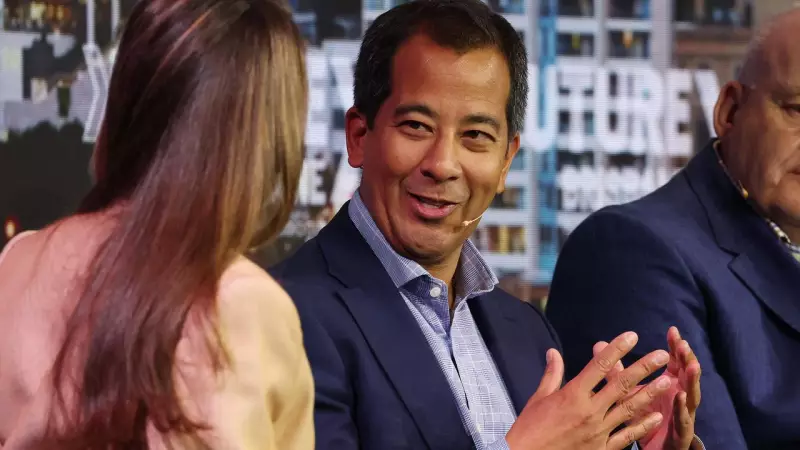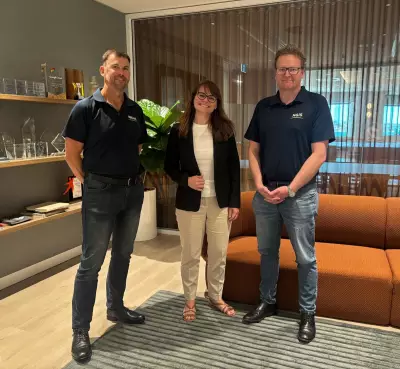
Australia's position in the global artificial intelligence race faces serious jeopardy unless governments immediately change their approach to technology procurement, according to the nation's newest ASX 50 technology company.
Cultural Cringe Holding Back Australian Innovation
Brisbane-based enterprise software giant TechnologyOne has issued a stark warning that Australia risks missing its chance to lead in AI development unless government agencies stop overlooking local solutions in favour of foreign alternatives.
Chief Executive Ed Chung says despite political rhetoric supporting Australian industry, procurement decisions within bureaucracies continue to reflect what he describes as a "cultural cringe" against homegrown technology solutions.
"AI is the fastest growing technology in history. We have to decide now – do we want to be leaders or passengers?" Mr Chung stated.
He emphasised that Australia possesses the talent, commercial track record and research capability to excel in AI development, but without fair access to government contracts, local innovation remains overshadowed by international tech giants and global consulting partners.
Economic Consequences of Overlooking Local Tech
The consequences of continuing to undervalue Australian software extend beyond the technology sector, putting national prosperity at risk by exporting high-skilled jobs and intellectual property while hollowing out the country's digital capability.
Mr Chung points to Australia's alarming drop in global economic complexity rankings – falling from 93rd to 105th position, behind Botswana – as clear evidence the nation is losing ground.
"That means the job choices available to our kids are going to be way more limited than we want for them," he warned.
The CEO highlighted what he sees as an unfair playing field, where Australian companies must be "cheaper, better, faster" yet still lose contracts to overseas competitors recommended by Big Four consulting firms.
TechnologyOne's Homegrown Success Story
Founded in Brisbane in 1987 and now valued above $13 billion, TechnologyOne has demonstrated what Australian technology can achieve when given the opportunity to compete.
The company has grown through its focus on building software for critical public-sector services and higher education institutions across Australia, New Zealand and the United Kingdom.
"TechnologyOne is an example of what is possible. We are exporting homegrown software around the world, including AI that is way ahead of anything our competitors are offering," Mr Chung said.
The company recently launched its agentic AI product, Plus, which will be released to its extensive global customer base in coming months, proving Australia can lead both technologically and commercially.
A New Model for Software Delivery
Beyond its AI innovations, TechnologyOne's SaaS+ model challenges traditional software delivery approaches. Instead of outsourcing implementation to third-party consultants who charge by the hour, the company handles everything in-house without separate implementation charges.
"We don't charge for implementation, so if we run over time on the project, we are the ones losing money," Mr Chung explained. "We can do that because we long ago refused to partner with the big international consulting companies."
This approach directly addresses the problems that have plagued many high-profile "tech wreck" projects in government and corporate sectors.
Call for Procurement Reform
Mr Chung says federal leaders have shown positive intent, but procurement decisions remain stuck in old habits. To initiate change, he wants procurement agencies to begin with a simple question: "If not Australian, why not?"
He argues this approach would quickly reveal whether Australian options have been properly considered or given fair opportunity.
"You've all started to talk the talk, and that is great. But your bureaucrats are not yet walking the walk," Mr Chung said. "The rest of the world is sprinting. Let's do what we do best and join the race to win."
With digital sovereignty becoming a policy priority in Europe and other regions, Mr Chung questions whether Australia should risk reliance on overseas technology that will be central to every aspect of personal and business lives.
This article is part of the Back Australia series, which is supported by Australian Made, Harvey Norman, Westpac, Bunnings, Coles, TechnologyOne, REA Group, Cadbury, R.M.Williams, Qantas, Vodafone and BHP.





